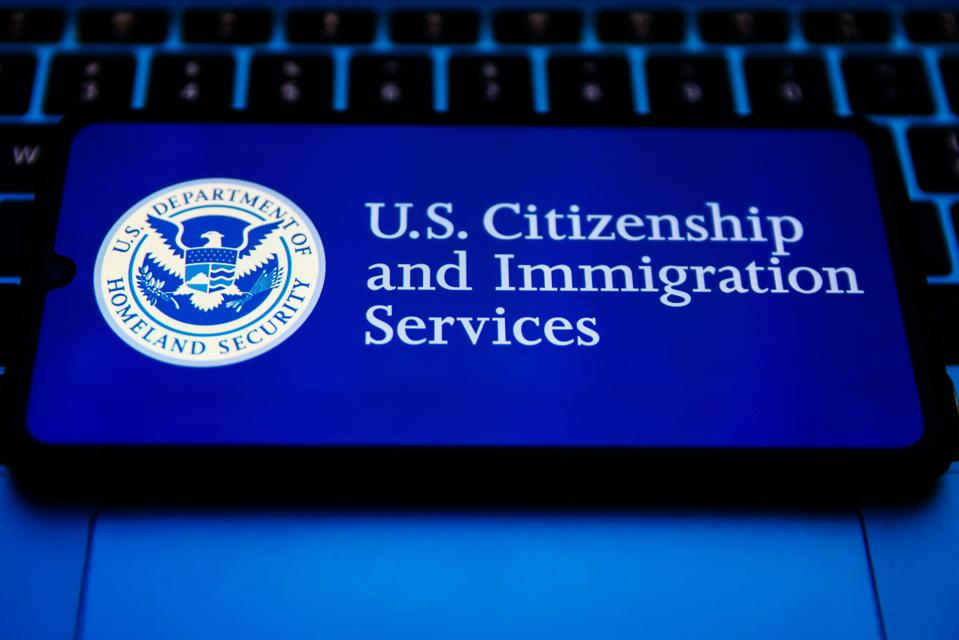The United States Citizenship and Immigration Services (USCIS) will begin to require that those applying for asylum in the country, permanent residency or even naturalization provide their social media handles. The move came after President Donald Trump issued an executive order earlier this month as part of an effort to vet those who might harbor anti-American sentiments.
The Department of Homeland Security has since issued a 60-day notice for public commentary on Trump’s order titled “Protecting the United States from Foreign Terrorists and Other National Security and Public Safety Threats.” As The Associated Press reported, it further called for “uniform vetting standards,” which would collect the social media handles and the platforms that are used.
It would not seek passwords or access to the accounts, but the handles would be enough for immigration officials to seek any “harmful anti-American ideologies.” This policy isn’t new, however, even if this is being more direct about its intent. Social media activity has been used before as part of the immigration process.
“It’s worth noting that the State Department has been requiring social media handles for visa applications since 2019, so this is a bipartisan procedure,” explained Dr. Matt Schmidt, professor of national security and political science at the Henry C. Lee College of Criminal Justice and Forensic Sciences at the University of New Haven.
“The concern is that this new rule would be imposing a free-speech burden on people already in the country legally,” added Schmidt.
“Currently, USCIS screens online activity and accesses most public social media accounts,” added Dr. Cliff Lampe, professor of information and associate dean in the School of Information at the University of Michigan.
“However, previously this information has been used for a limited set of reasons—fraud, national security risks, criminal backgrounds, and things like proof of a marriage. Collecting handles could be just a way to make that search easier, but if the intention is to screen applicants for what they say in social media in terms of their personal beliefs, that would be new ground and unprecedented,” said Lampe.
Can The Posts Be Trusted?
Now that the policy is known, it is possible, even likely some users will respond accordingly – and try to curry favor with the administration.
“The likely reaction that people would have is to stop using social media, or only posting those things that would appeal to the ‘least common denominator,’ Lampe suggested.
Schmidt warned that in addition to the “chilling effect” this move could have on online speech, it probably will lead to a “proliferation of secondary handles to give to authorities that are scrubbed of any potentially problematic content.”
What About Those Without Social Media?
According to data from Smart Insights, roughly 3.4 billion people, or 36.1% of the global population, don’t use social media. Those individuals could face an extra scrutiny as a result.
“It could be that if a person doesn’t use social media, that could be considered suspicious, or a form of dissembling,” said Lampe.
“How would one tell if a person is really an abstainer from social media, or not honestly reporting their accounts,” he continued. “Depending on how strictly they police that, it could lead to significant enforcement work, or broad interpretations of social media use or non-use.”
What Will It Tell?
Given all of these issues, the question still is whether anything meaningful can be gathered by going through old social media posts.
“Scanning social media has had mixed results. People know social media is scanned, so many either don’t use it, or use it under a false identity so what they say and do can’t be traced back to them,” said technology industry analyst Rob Enderle of the Enderle Group. “People can also have posts show up in their feed that they neither asked for nor approved of, and social media security hasn’t been great, so folks have had their IDs and passwords stolen and false posts made in their names.”
Social media could bring to light some anti-American sentiment, but that is far from the norm.
“In most cases, Social Media scans after the fact have at times provided motives for crimes, but more with citizens than with foreigners,” added Enderle. “While scanning social media can grant insights into the individual’s interests and mindset, they can also create false impressions, so as part of an overall background check, they have value, but alone they have a high probability of creating a false impression, positive or negative.”

